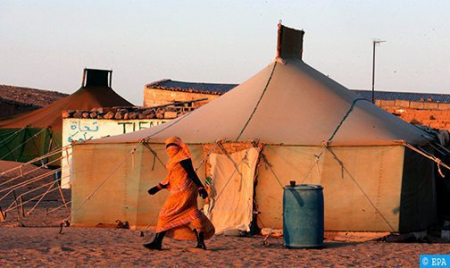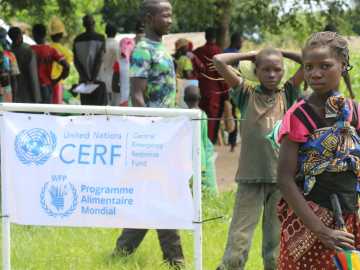Morocco has underlined Algeria’s responsibility, as host country, to guarantee safe and unrestricted humanitarian access to the Tindouf camps and to allow free registration of the populations sequestered in the camps, in accordance with its obligations and the provisions of international humanitarian law.
This was outlined in a speech delivered by Morocco’s Permanent Representative in Geneva, Omar Zniber, at the 86th meeting of the UNHCR Standing Committee, held March 7-9.
The diplomat noted in his speech that Algeria has violated its duties by transferring its powers, obligations and territory to a separatist armed group, thus setting a precedent never recorded in international law.
“We are witnessing, with amazement, the militarization of the camps, the formation of militias and the recruitment of children,” he said.
The diplomat said it is unacceptable that the host state does not ensure the humanitarian character of the camps, in compliance with the 1951 Convention and its Additional Protocol.
Zniber also recalled that the evaluation report of UNHCR’s activities in the MENA region cites 17 out of 18 states in which the registration of refugees has been strengthened in 2022, noting that the only state that has not submitted to this legally and morally binding exercise is Algeria.
Registration is a vital protection both for people of concern to UNHCR and for the work of UNHCR, in order to avoid any political use of humanitarian assistance, he said.
He added that “while Morocco welcomes the increase in refugee registration procedures in the MENA region, up 60% from 2021, we call on UNHCR to shed full light on the obstruction of the Algerian authorities.”
The Algerian approach is meant to hide the embezzlement of humanitarian aid dedicated to the camps and the enrichment of the separatist movement’s leaders, said Zniber.
As part of the Standing Committee’s proceedings dedicated to the situation in the MENA region, the Moroccan mission highlighted the Kingdom’s humanitarian and proactive policy, crystallized by the National Strategy for Asylum and Immigration, as well as Morocco’s national commitments for the full integration of refugees and asylum seekers, including the signing of an agreement on health between UNHCR and Morocco and the organization in June 2023, in Rabat, of the 3rd Global Consultation for Migrants’ Health.
On the sidelines of the 52nd session of the Human Rights Council (HRC), the International Observatory for Peace and Human Rights (IOPDHR) organized a panel on the situation of human rights in the Tindouf camps with the participation of several civil society organizations and activists.
IOPDHR presented during the panel a report, drawing a bleak picture of the situation of the populations sequestered in the camps of Tindouf, in southeastern Algeria.
The panel, which debated the situation and heard testimonies on the sufferings endured by the sequestered populations, adopted the Geneva Declaration that called, inter alia, to lift the state of emergency in the Tindouf camps, grant the populations the right to peaceful demonstration and to shed light on cases of enforced disappearances.
The Geneva Declaration called for an end to all forms of repression targeting activists who do not share the theses of the “olisario, while expressing deep concern over the increasing violations of the rights of the camps populations by the polisario and the Algerian forces.
In this connection, the participants called on the international community to ensure that the camps populations enjoy the necessary protection, that the camps be managed in accordance with international standards, and that a legal framework be put in place to ensure the implementation of the international conventions relating to the status of refugees.
The document urged Algeria to allow human rights organizations and associations access to the camps, in order to interact with the populations, identify them, and provide them with the assistance they need.
The Text also recommended opening investigations into all cases of enforced disappearance and torture, which have occurred throughout the past five decades, while bringing those responsible to justice, in accordance with international human rights law.
In addition, the Declaration called for the improvement of basic services and the inclusion of the camps in the host country’s development programs, as well as increased efforts to end the recruitment of children and violence against women.



